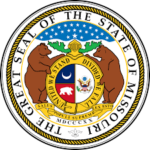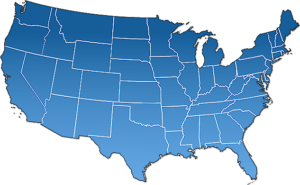 Every January, we are inundated with a firehose of public notice bills gushing from legislatures ranging from Connecticut to California and most states in-between. This year has been no different. PNRC is now following 83 separate pieces of legislation which almost certainly doesn’t include many other most-likely minor bills we haven’t been able to catch up with yet.
Every January, we are inundated with a firehose of public notice bills gushing from legislatures ranging from Connecticut to California and most states in-between. This year has been no different. PNRC is now following 83 separate pieces of legislation which almost certainly doesn’t include many other most-likely minor bills we haven’t been able to catch up with yet.
Trends emerge in public notice bills
 It used to be a relatively rare event when a bill remedying errors or omissions in public notice advertising was introduced. Or when legislation authorizing newspaper websites or e-editions to substitute for print was proposed. But those types of measures have proliferated in 2023, along with bills designed to fill jurisdictional holes in news deserts, which have been picking up steam for a few years now.
It used to be a relatively rare event when a bill remedying errors or omissions in public notice advertising was introduced. Or when legislation authorizing newspaper websites or e-editions to substitute for print was proposed. But those types of measures have proliferated in 2023, along with bills designed to fill jurisdictional holes in news deserts, which have been picking up steam for a few years now.
The Kentucky Compromise
 Republican domination of Kentucky’s statehouse has not been a positive development for the Bluegrass State’s public notice laws, which have been under siege for the better part of the last decade. The fight came to a head in 2017, when the GOP assumed majority-party status in both chambers for the first time in the state’s modern history.
Republican domination of Kentucky’s statehouse has not been a positive development for the Bluegrass State’s public notice laws, which have been under siege for the better part of the last decade. The fight came to a head in 2017, when the GOP assumed majority-party status in both chambers for the first time in the state’s modern history.
After failing to move public notice legislation via the normal committee process in 2017, state Senator Chris McDaniel (R-Covington) added language to a budget bill authorizing local governments in counties over 90,000 in population to publish most government notices on their own websites. McDaniel’s amendment also allowed school districts in the state to publish annual financial statements on their websites instead of newspapers. The bill eventually passed both the House and Senate, but former Governor Matt Bevin vetoed it because it raised taxes. His veto was overridden.
Missouri Only State in Present Public Notice Peril
 An election year? A surge in passion for government transparency? A growing admiration among state legislators for their local newspapers? Whatever the reason, the state of public notice in the U.S. remains unseasonably calm for this time of the year.
An election year? A surge in passion for government transparency? A growing admiration among state legislators for their local newspapers? Whatever the reason, the state of public notice in the U.S. remains unseasonably calm for this time of the year.
Lots of public notice-related legislation has been introduced — PNRC is tracking more than 200 bills — but so far most of it hasn’t gone anywhere. There have been pockets of activity over the last month, however. Here are the highlights.
Nevada the Latest Public Notice Trouble Spot
 Legislation that would authorize radio and television station websites to publish public notices in Nevada has become a serious threat to newspapers in the state, according to the Nevada Press Association (NPA). Senate Bill 218 would establish broadcaster websites as an alternative to newspapers for all legislatively mandated notices in the state, including foreclosure and other private-party notices.
Legislation that would authorize radio and television station websites to publish public notices in Nevada has become a serious threat to newspapers in the state, according to the Nevada Press Association (NPA). Senate Bill 218 would establish broadcaster websites as an alternative to newspapers for all legislatively mandated notices in the state, including foreclosure and other private-party notices.
